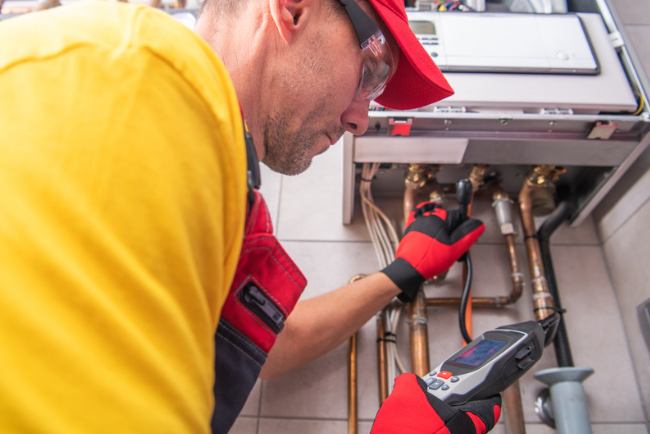Commercial HVAC Systems: Optimizing Energy Efficiency for Cost
- info5400353
- Jul 13, 2023
- 3 min read

In today's competitive business landscape, optimizing energy efficiency has become a top priority for commercial establishments. With heating, ventilation, and air conditioning (HVAC) systems accounting for a significant portion of energy consumption, businesses are increasingly looking for ways to reduce their carbon footprint and lower operational costs. In this blog post, we will explore the importance of energy-efficient HVAC systems and discuss practical tips for businesses to improve their commercial HVAC performance while optimizing their SEO.
1. Understanding the Importance of Energy Efficiency in Commercial HVAC:
Efficient HVAC systems not only contribute to a sustainable environment but also provide substantial cost savings. By adopting energy-efficient technologies and practices, businesses can significantly reduce their utility bills and enjoy a positive return on investment. Furthermore, energy-efficient HVAC systems align with the growing demand for eco-friendly practices, enhancing a company's reputation and attracting environmentally conscious customers.
2. Regular Maintenance and Inspections:
To ensure optimal performance, commercial HVAC systems require regular maintenance and inspections. Engaging a professional HVAC technician to perform routine inspections, cleanings, and tune-ups can improve system efficiency, prevent breakdowns, and extend the lifespan of the equipment. It is crucial to emphasize the significance of preventive maintenance to businesses, as it minimizes the chances of unexpected HVAC failures that can disrupt operations.
3. Upgrading to Energy-Efficient HVAC Equipment:
For businesses seeking substantial energy savings, upgrading to energy-efficient HVAC equipment is a game-changer. Modern systems, such as high-efficiency boilers, variable refrigerant flow (VRF) systems, and energy recovery ventilators (ERVs), offer superior performance and energy savings compared to older models. When selecting new HVAC equipment, businesses should look for products with high Energy Star ratings and consult with HVAC professionals to determine the most suitable system for their specific needs.
4. Smart Thermostats and Building Automation:
Integrating smart thermostats and building automation systems can significantly enhance energy efficiency in commercial settings. These technologies allow for precise temperature control, optimize energy consumption based on occupancy schedules, and provide remote monitoring capabilities. By harnessing the power of automation, businesses can minimize energy wastage during off-peak hours and ensure a comfortable indoor environment during operating hours.
5. Implementing Zoning Systems:
Commercial buildings often have varying occupancy levels and usage patterns across different areas. By implementing zoning systems, businesses can customize heating and cooling settings based on individual zones or departments. This targeted approach prevents over-conditioning or under-conditioning specific areas, leading to improved energy efficiency and comfort. Informing businesses about the benefits of zoning systems and their impact on energy savings can help them make informed decisions regarding their HVAC setup.
6. Embracing Renewable Energy Sources:
As the world shifts towards clean energy alternatives, commercial establishments can consider integrating renewable energy sources into their HVAC systems. Options such as solar panels and geothermal heat pumps enable businesses to reduce reliance on traditional energy sources and achieve substantial energy savings in the long run. Highlighting the advantages of renewable energy adoption can resonate with eco-conscious businesses and appeal to a wider audience.
Conclusion:
In the pursuit of energy efficiency and cost savings, businesses must prioritize optimizing their commercial HVAC systems. Regular maintenance, upgrading to energy-efficient equipment, implementing smart technologies, utilizing zoning systems, and embracing renewable energy sources are practical approaches for achieving these goals. By adopting these strategies and staying abreast of the latest HVAC advancements, businesses can reduce their environmental impact, improve their bottom line, and gain a competitive edge in the market. Remember to consult with HVAC professionals to tailor these solutions to your specific needs, ensuring a seamless transition to a more energy-efficient future.
For an HVAC check-up or to schedule your next appointment, please contact us.








Comments